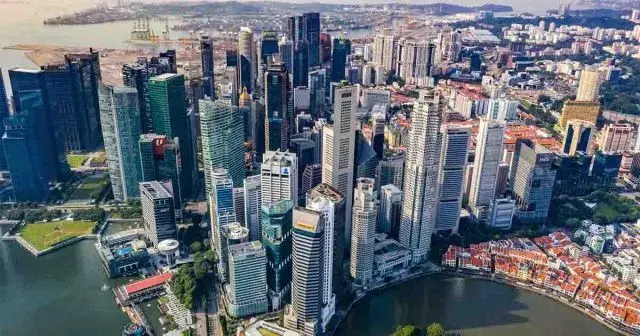**By APD writer
Maverick**
**JAKARTA, Nov. 17 (APD) ** - A report highlighting schemes to finance projects in delivering the United Nation’s (UN) 2030 Sustainable Development Goals (SDGs) for ASEAN countries was launched here on Friday, giving the 10 ASEAN member nations several options in doing so.
The report was resulted from a collaboration between China, ASEAN and the United Nations Development Program (UNDP), materializing results of discussions, experience sharing and suggestions conveyed by officials of China, ASEAN countries and UNDP in their meeting held in Thailand’s Chiang Rai in August this year.
Entitled “ASEAN-China-UNDP Report on Financing the SDGs in ASEAN: Strengthening Integrated National Financing Frameworks to Deliver the 2030 Agenda”, the report focuses on streamlining development financing and strengthening domestic resource mobilization in the ten ASEAN countries in order to finance national development.
The report also highlights China’s financing in ASEAN, which is expected to strengthen.
Addressing the report launching event held in the ASEAN Secretariat here, China Ambassador to ASEAN Xu Bu said that the report gives
comprehensive analysis on the status of SDGs financing in 10 ASEAN countries.
“It also mentions challenges they possibly face and viable solutions that merit further considerations,” Xu said in the event which was also presenting ASEAN Deputy Secretary General (DSG) for Socio Cultural Community Department Vongthep Arthakaivalvatee and UNDP Asia Pacific Director Haoliang Xu.
Ambassador Xu said that the report separately contains a chapter highlighting China-ASEAN cooperation in addressing sustainable development drive and financing cooperation established by the two economies, which he said of ‘great value for further development of China-ASEAN cooperation in the field’.
The launching of the report was considered as an essential event to mark 15th anniversary of China and ASEAN Strategic Partnership next year. China and ASEAN established their relations in 1991 initially as dialogue partners.
Ambassador Xu said that during their relations, China and ASEAN have intense cooperation in promoting implementation of points mandated in the SDGs.
The cooperation was evident in the newly-founded Asian Infrastructure Investment Bank (AIIB) which now has financed several projects related to SDGs mandates.
Among the projects were the upgrading of slum areas in Indonesia, safety improvement projects and several infrastructure projects in the region.
Xu said that China and ASEAN would see tighter cooperation in the future as the two economies have similar goals to build up better connectivity with their Belt and Road Initiative (BRI) and Single Community Vision by 2025 respectively.
“China is ready to cooperate closer with ASEAN countries to seek greater synergy between BRI and the masterplan of 2025 ASEAN Single Community,” Xu said.
Ambassador Xu said that the two economies have apparently went through mutually benefiting relations with two-way trade and investments were recorded at 452 billion and 187 billion U.S. Dollars respectively last year.
China is the largest trade partner to ASEAN in the last 8 years, while ASEAN was the third largest trade partner to China in the past 6 years, he added.
In term of people-to-people contacts, Ambassador Xu said that enormous visit between the two economies have occurred at present with 38 million visitations have been recorded, served by over 2,700 flights every week between cities in the two economies.
In his turn to deliver remarks, Vongthep Arthakaivalvatee said that the report gives an understanding for people in ASEAN on the scale and mix of SDGs financing in the ASEAN region as well as opportunities that can be explored to maximize the financing.
“ASEAN’s greatest asset is its people. Proper financing would enable them to reach their potentials,” Vongthep pointed out.
Meanwhile, UNDP Asia Pacific Director Haoliang Xu said that SDGs financing would involve government, public and private sectors, encouraging those involved in SDGs fund raising activities
to team up closely, so as to create more partnership between them.
“So it is not merely about the money,” he said.
SDGs was initiated by UN, containing a set of 17 ‘Global Goals’ for all countries in the worlds regardless developed or developing countries. The goals were expected to be complied by 2030, covering ranges of social issues, including poverty, hunger, education, health, gender equality and social justice.
The SDGs were developed to replace the Millennium Development Goals which expired in 2015.
(ASIA PACIFIC DAILY)
 简体中文
简体中文



